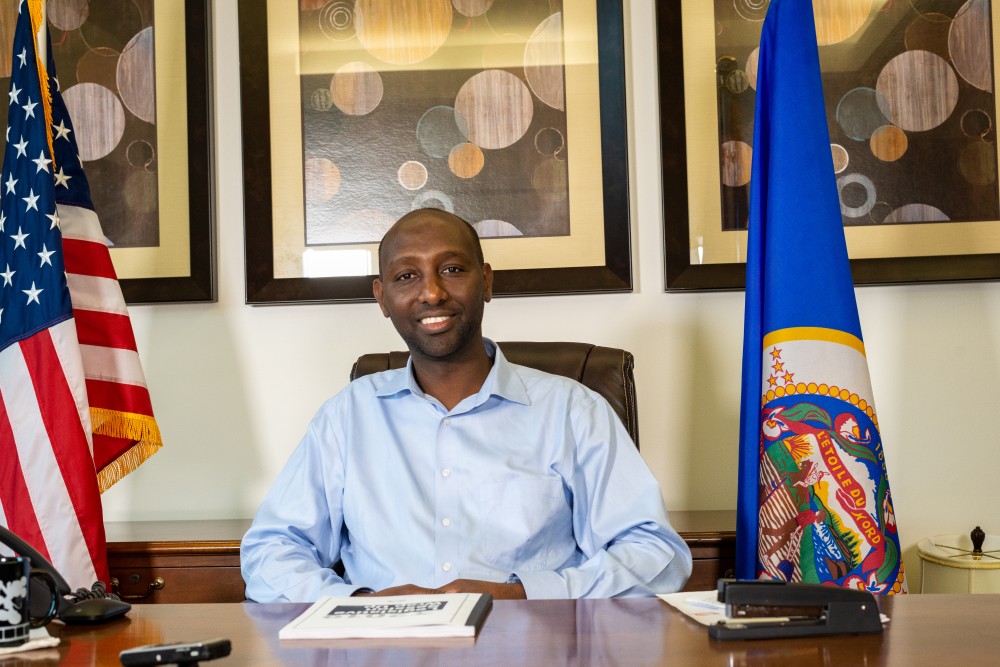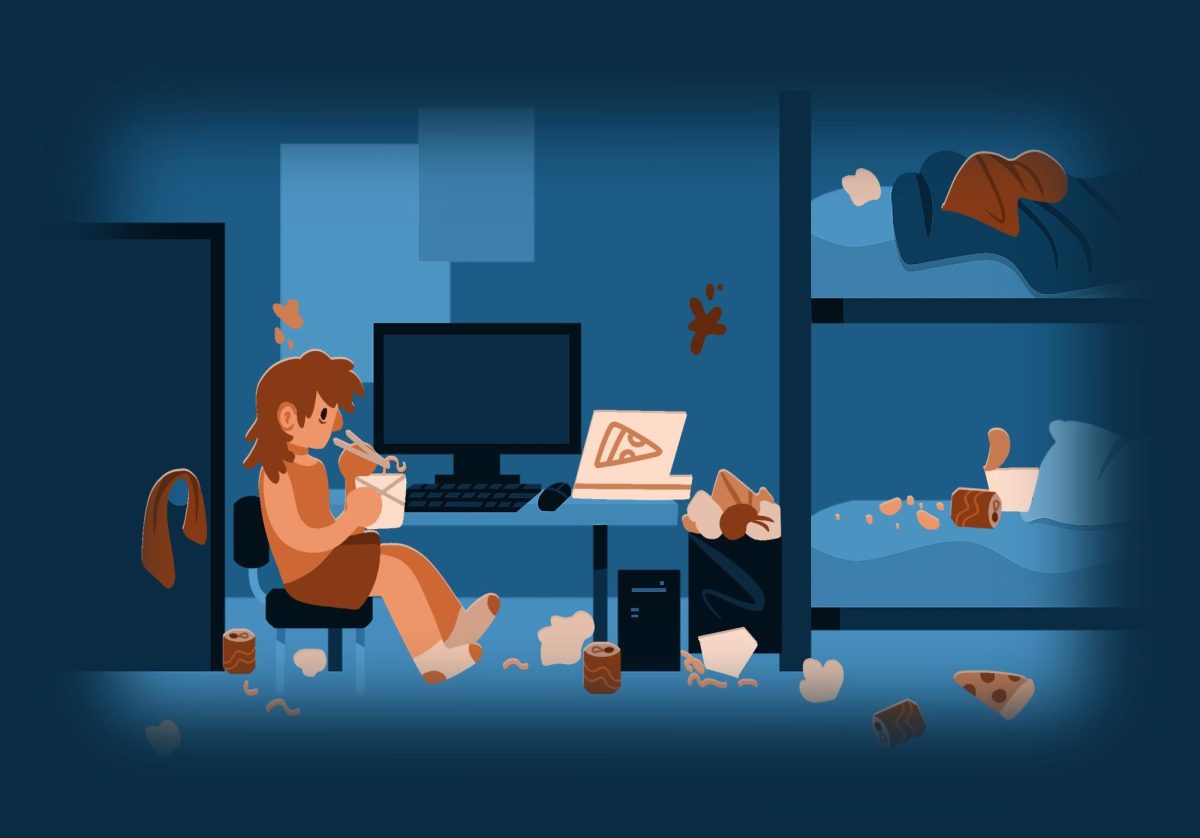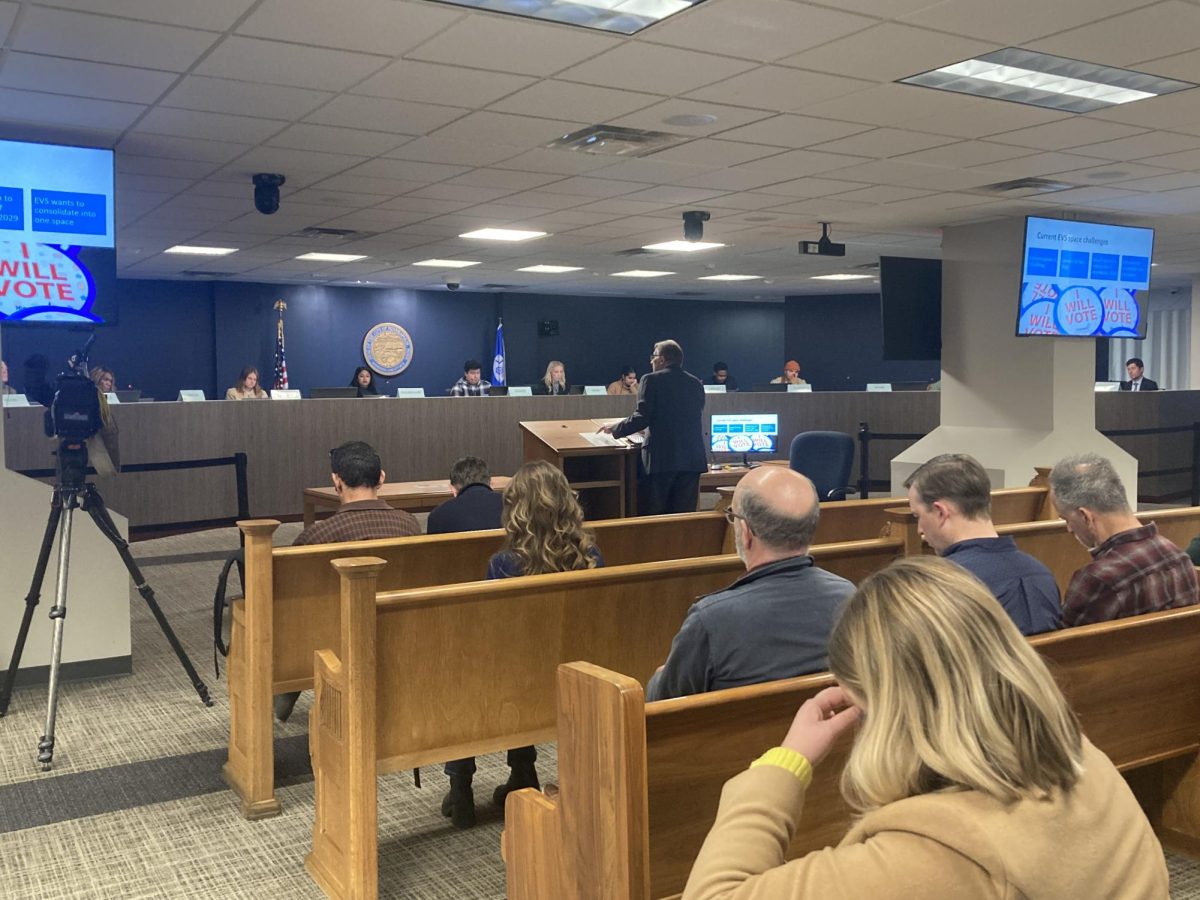Rep. Mohamud Noor, DFL-Minneapolis, sat down with the Minnesota Daily to reflect on his first session as a state representative for the University of Minnesota and surrounding neighborhoods in District 60B. Coming from a background as a local community organizer, especially in the Cedar-Riverside community, Noor said it was difficult working with a divided government.
How did you feel about the first session?
Disappointed. We came with lots of energy and high hopes that we can really address significant issues. But no, this session wasn’t what I had expected it to be. With a divided government, obviously you have to compromise a lot. It seems that we compromised a lot to make sure that we got work done.
Tell me about that. What were some of the challenges?
Let’s start with the bigger push that we wanted to see with the colleges. We wanted to start with addressing, as a caucus, freezing tuition. That didn’t happen. My goal was actually to go beyond that by focusing on addressing affordability of college. Let’s look at the whole picture: what does it take for a college student to pay their tuition, pay for their transportation, for their housing, for their books and everything? That comprehensive approach and making sure that we can really dent it — no, we didn’t get to that. So we did get some funding, but that wasn’t really what we were looking for. That’s just a small sliver of the bigger issue.
We wanted to really significantly do major investment in communities and address the housing issue. We only got $75 million. That’s just a start, that’s a drop in the box when you look into the need.
So, the major significant things that we could not get through this session [were] the gun violence prevention bills [and] the ending criminalization of poverty cash bail bill that I was carrying. We had to give up on several things. … Sometimes you come up with hopes and you see that everything that you wanted to get through didn’t get through.
You came from community organizing. How was it getting acclimated to the Legislature and what were some of the differences that came between those two [roles]?
I think the structure. Everything else that you do in terms of campaigning, getting connected to the community — you are solving a problem at the forefront. But now, you’re addressing that problem from the back end. And ensuring that the policies that you’re really championing for, the issues that you’re addressing, align with what you have seen on the ground. Sometimes it’s difficult.
Organizing … is different from the policy process. There are several hoops and barriers and quite frankly when I’m serving in, I’m the vice chair for jobs and economic development, I’m also in [Health and Human Services] finance, I’m in Ways and Means, I’m also in judiciary and civil law [committees]. That means your time is already preoccupied by those committees … into the night. And yet, you have to keep up with everything else.
So the key point I’m trying to point out is you need allies. You need people who can champion the issues with you. By organizing from my desk here, I can rely on them putting pressure on every elected official who is in that committee, every elected official who is going to be voting in the end. It’s a lot of work.
What are you most proud of accomplishing? What, overall, have you appreciated about this session? What things do you look back on fondly?
We’ve seen where the need is. We’ve talked about the issue of housing and tenant rights and landlords, something that I inherited from the previous session. To build that, I think, was overdue.
Just within [the renters’ rights bill] when I was fighting for the students and the low-income individuals in our district, making sure that there’s fairness … if it’s good for the landlord, it should be good for the tenant, if it’s good for the tenant it should be good for the landlord. … I was grilled for more than two hours just to pass that simple policy saying that the apartment number you’re going to be renting should be on the front page [of your lease]. You can imagine that type of resistance on a simple issue. But yet, we were able to get it through [by] using the legislative process.
One of the issues that we succeeded in is addressing the opioid crisis … We created the advisory council right now with resources — because you cannot just talk about a crisis without finding the resources. So the manufacturers are going to be paying for that to make sure that we address and curb the crisis that we’re seeing in our district and many places. That was a huge success.
You talked about renters’ rights a little bit, how was it working with … the Minnesota Student Association?
I was going to mention that. They actually carried the load for me on that one. They came and testified. We had to fight a little bit. We had to actually pull back the bill at one point when it got so fired up. … We came back and succeeded in passing two different committee hearings with the students, including the legal advisory office at the U. They did an awesome job.
If you want any legislation to pass through this chamber or the Senate, you have to have those that will champion for that. So the students were great.
You [co-authored] the driver’s license for all bill, which obviously didn’t go through. What are your feelings about that and do you hope to reintroduce it?
We will. We never give up. This is the first time that it had a hearing. We had more than five hours of debate on that issue. It’s just, it’s about respect and safety and dignity of the individuals who are going to be on the roads. Immigration is now being used as a scapegoat for many things. And if that is the angle, I think people have to be more careful [in] how we deal with immigration issues. …
I was also disappointed when I saw the report from the federal government showing that [they] and also other entities are snooping through the database to know who is here as an undocumented immigrant. So that is also something that we will take up immediately when the session comes so we are able to put some barriers for anyone who can come and snoop the data. That creates fear for immigrants showing that ‘oh somebody else is going to get that data.’ And whatever we may do, we may prevent that. Many states have already moved forward with this. We cannot be waiting any longer. I think next session is more about policy and this policy issue has no cost. This is going to be a win-win.
What are some of your goals for the upcoming session?
One issue that I think we need to start talking about is the wealth and income inequality that exists in our state. We’ve invested significantly in education right now, in K-12. Although we wanted more because there’s a lot of issues with special education cross-subsidy.
So let’s talk about starting with home ownership. We keep on talking about subsidies for rental. Nobody has started talking about … home ownership. We’ve seen the devastation in 2008 when the housing collapsed and the economy collapsed. … The rent is now higher than even paying for mortgage. So you’ve seen the gap that already exists. How do we start talking and having conversations of saying, ‘Look, anybody who is low income or communities of color who have been left out from home ownership, we need to close that gap.’ And to close that gap, we need to significantly invest in that type of housing. I don’t want to start talking about rent control, but at one point I think there’s a need to start discussing rent control.
The issue of the affordability of college is huge, and I think we started the talk. And we do have some additional resources. It may be … maybe some magic that we can come up for some ways of addressing it so that the U doesn’t increase the tuition for the students. That’s a tuition freeze. But I’m looking for other ways of addressing [it for] those who are making less than $125,000. Especially for those who need it the most.
This interview has been lightly edited for grammar and clarity.








